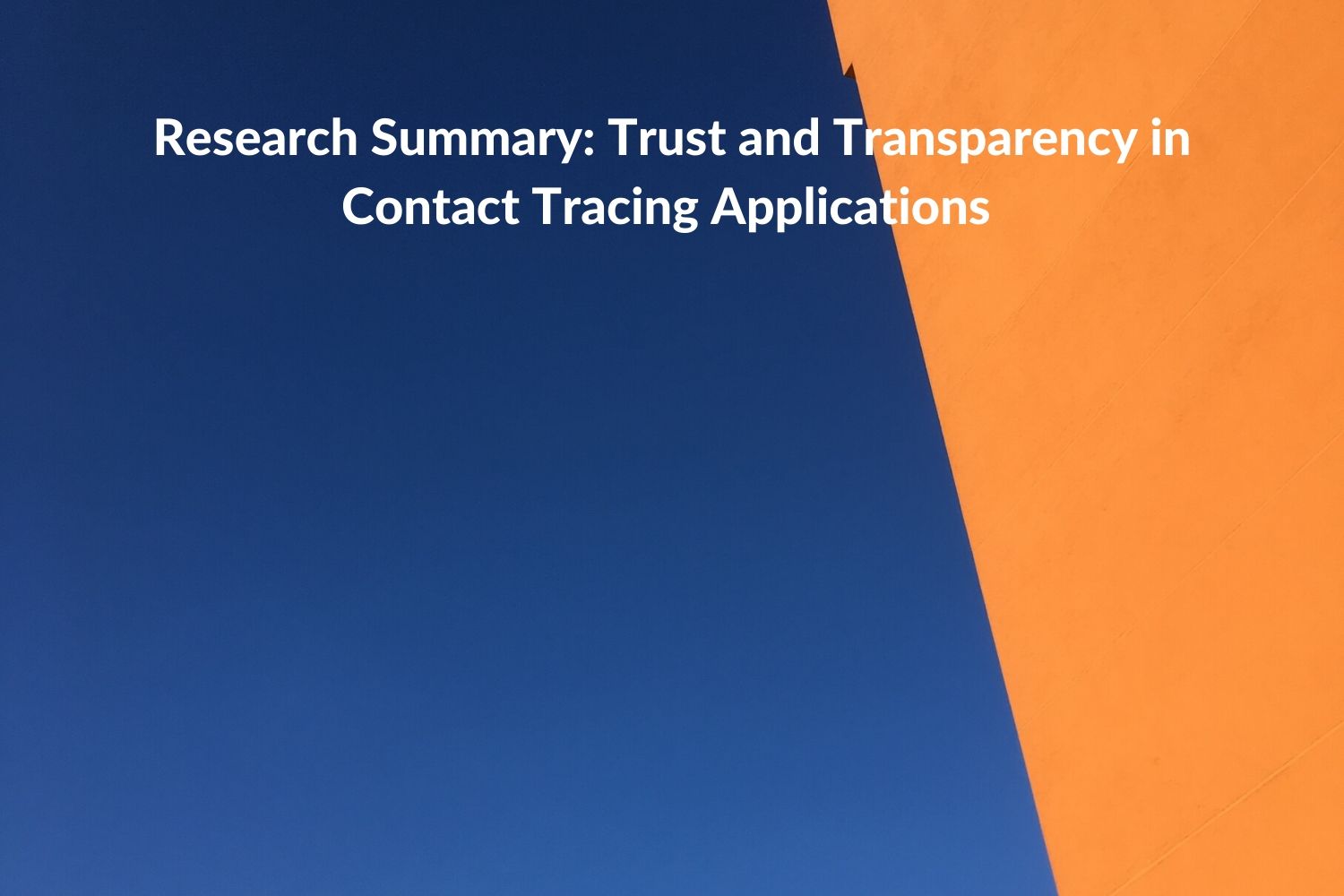

Summary contributed by Allison Cohen, a researcher here at MAIEI. Also consultant at AI Global. Previously an AI Strategy Consultant at Deloitte.
*Author & link to original paper at the bottom.
In a matter of days, a contact tracing application will be deployed in Ontario. It is estimated that 50-60% of the population must use the app in order for it to work as intended, warning individuals of exposure to COVID-19. But, how much do we really know about this technology? Of course, automatic contact tracing can be more accurate, efficient and comprehensive when identifying and notifying individuals who have been exposed to the virus relative to manual contact tracing; but, what are the trade-offs of this solution? To guide our thinking, authors of “Trust and Transparency in Contact Tracing Applications” have developed FactSheets, a list of questions users should consider before downloading a contact tracing application.
According to the article, users should begin by asking which technology the app uses to track users’ location. If the app uses GPS, it works by identifying a user’s geographical location and pairing that data with a timestamp. In terms of efficacy, the technology is impeded when users are indoors or in a building with different stories (e.g. an apartment building). Bluetooth, on the other hand, establishes contact events through proximity detection.
However, Bluetooth’s signal strength can be obstructed by the orientation of the device as well as the signal’s absorption into the human body, radio signals or in buildings and trains. Neither GPS nor Bluetooth capture variables such as ventilation or the use of masks and gloves, which also impact the likelihood of transmission. Not to mention, both technologies rest on assumptions that the device is in possession of one individual and stays with them at all times. Both of these assumptions can result in a false determination of exposure.
In addition to accuracy concerns, users should consider:
- Privacy: sensitive data users are asked to share with the application (health status, location details, social interactions, name, gender, age, health history)
- Security: the vulnerability of the application to attack
- Coverage: the number of users that will opt into the use of the application
- Accessibility: whether the technology is accessible to the entire population (consider that 47% of people aged 65 and older do not have smartphones)
- Accuracy: whether the limitations of Bluetooth and GPS location tracking will undermine the accuracy of the app
- Asynchronous Contact Events: whether the app will capture risk of exposure from transmission in circumstances other than proximity to others (i.e. infected surfaces)
- Device Impacts: the app’s impact on the users’ devices (battery life etc.)
- Ability: users’ capacity to use the app as intended
- Ability: interoperability between contact tracing applications downloaded by the rest of the population
- Reluctance in Disclosure: whether users will submit information about their positive COVID-19 diagnosis
Check out FactSheets to obtain further details users should consider before downloading a contact tracing application.
Original paper by Stacy Hobson, Michael Hind, Aleksandra Mojsilovic´ and Kush R. Varshney: https://arxiv.org/pdf/2006.11356.pdf
